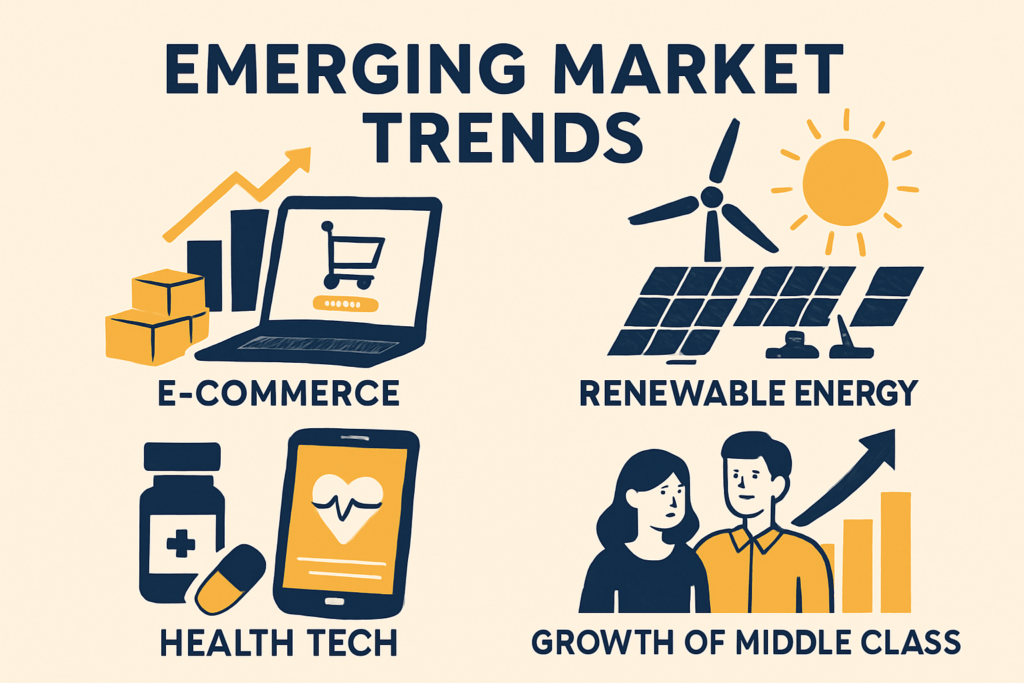The Role of Consumer Behavior in Shaping Market Trends
Navigating Wealth After a Jackpot Win
Winning a life-changing lottery jackpot is every player’s dream, but few are prepared for what comes next. While the sudden influx of wealth can bring excitement, it often comes with unexpected challenges. Managing immediate financial realities, adjusting lifestyle choices, and deciding whether to share wealth define many winners’ journeys.
Financial Decisions
Many winners find themselves overwhelmed by financial decisions:
- Tax Obligations: A significant portion of winnings often goes to federal and state taxes.
- Investment Strategies: Hiring financial advisors can help ensure future security.
- Budgeting: Without careful planning, even substantial winnings can vanish quickly.
- Reckless Spending: Some winners struggle with expenditures that deplete their funds faster than anticipated.
Lifestyle Transformations
For many winners, lifestyle changes happen almost immediately:
- Luxury Purchases: Mansions, exotic cars, and extravagant vacations become realities.
- Social Dynamics: Friends and distant relatives often appear seeking financial help.
- Privacy Concerns: Adjusting to public attention can lead some winners to seek a low-profile existence.
Philanthropy and Legacy
Beyond personal wealth, some winners focus on creating a legacy:
- Charitable Efforts: Donations to charities and community projects are common.
- Impactful Investments: Business investments and scholarships can drive long-term positive change.
- Community Involvement: Some winners prioritize revitalizing their local towns or supporting education.
Conclusion
Ultimately, how winners navigate their newfound riches determines not only their personal futures but also the broader legacy they leave behind. Whether through wise investments, impactful charitable giving, or cautious lifestyle choices, winners have the power to shape both their destinies and the world around them.
The Journey After Winning the Lottery
Winning a life-changing lottery jackpot is every player’s dream, yet few are prepared for the realities that follow. While the sudden influx of wealth can bring excitement, it also introduces a wave of challenges.
Facing Financial Decisions
Winners often face overwhelming financial choices, such as:
- Managing Taxes: A significant portion of the prize may go to taxes, and proper planning is crucial to avoid legal issues.
- Investments: Some winners opt to hire financial advisors to secure their future, while others face the risk of reckless spending.
Without strategic planning, the dream of endless riches can quickly turn into a financial nightmare.
Lifestyle Transformations
The win often brings immediate lifestyle changes:
- Luxury Purchases: Winners frequently acquire luxury homes, exotic cars, and take extravagant vacations.
- Social Dynamics: Friends and distant relatives may appear, hoping for a share of the winnings, which can lead to tension and tough decisions.
Some winners choose a low-profile life to avoid the pressure and attention that accompany sudden wealth.
Building a Legacy
Beyond personal indulgence, many winners use their fortunes to make a difference:
- Charitable Donations and Community Projects: Many contribute to philanthropy by funding scholarships, launching nonprofits, or investing in community revitalization.
- Business Ventures: Investments that create jobs and opportunities are also a priority for those seeking to leave a positive legacy.
Ultimately, how winners handle their newfound riches shapes not only their future but also the legacy they leave behind. While stories of financial missteps abound, there are just as many inspirational tales of winners creating lasting positive impacts.
How Modern Consumers Set the Pace
Forget the days when shoppers just took what brands handed them. Modern consumers call the shots—they’re armed with information, move quickly, and have zero patience for second-rate stuff. One bad review, one clunky checkout, and they’re gone. They jump brands like it’s no big deal, because for them, it isn’t.
What’s trending now? It’s not just about looks or price. People demand accountability: eco-friendly packaging, ethical business practices, truly useful tech. Look around and you’ll see plant-based everything, streaming and subscription models for instant access, and a big push for local—because trust matters. When enough buyers shift tastes, the whole supply chain scrambles to catch up.
It’s basic, but relentless: consumers steer the car, the market follows. Those who ignore this get left in the dust.
The Mechanics of Buying Behavior
Let’s get gritty with what actually pushes someone from browsing to buying. It’s never just one thing. Needs—the basic stuff, like hunger or wanting the latest phone—set off the urge. But few decisions happen in a vacuum. Friends, family, and even total strangers on the internet now shape our buying behavior. A good review or bad rating can change your mind faster than any commercial.
It’s not all impulse, though. The buyer’s journey is real: First you become aware of a product, then you weigh your options, then—maybe—you hit buy. This path has only gotten more tangled with digital info everywhere. Social proof is huge. Seeing a packed restaurant, a trending product on TikTok, or great testimonials? That’s FOMO (fear of missing out) calling, and people respond.
So, if you want to spot what’s next, follow what really sparks buying behavior: the mix of needs, influence, social buzz, and sometimes just not wanting to be left behind. Sellers know this and design their pitch accordingly. And that’s how the simple act of “buying” turns into a market force.
Real Market Shifts: When Consumers Rule
When consumers decide to change direction, entire industries have to keep up—fast. Take plant-based foods. Not long ago, tofu was a niche item gathering dust on supermarket shelves. Now, health-conscious shoppers and a growing flexitarian crowd have pushed plant-based options into the mainstream. Major grocery chains dedicate prime real estate to these items because shoppers demanded it. That’s direct consumer behavior reshaping what gets made, stocked, and marketed.
Subscription services are another case in point. People want hassle-free experiences, not more stuff piling up in closets. Streaming platforms, meal kits, even monthly sock deliveries—these didn’t catch on because companies simply willed them into existence. They flourished because busy, convenience-hungry consumers voted with their wallets, forcing traditional ownership models to adapt or risk getting left behind.
And then there’s the wildfire speed of viral trends. A random product goes viral on TikTok, and suddenly it’s sold out worldwide. Launches can soar or crash overnight, with a handful of social media posts making or breaking entire lines. That’s not hype—it’s buyers in the driver’s seat, dictating what becomes the next big thing (and what vanishes just as quickly).
Bottom line: market shifts aren’t random. They’re the direct consequence of collective consumer actions—whether steady, like the plant-based movement, or chaotic, like a trending beauty hack blowing up overnight. Ignore that, and you’ll be left scrambling to catch up.
The Feedback Loop: Markets and Consumers
Here’s the deal: consumer behavior and market trends aren’t a one-way street. Think of it more like a ping-pong match—buying behavior triggers adaptations from brands, and those changes then shape what customers want next. Brands that pay attention—tracking tweets, reading reviews, following forum buzz—catch these cues and adjust on the fly. Sometimes it’s subtle, like quietly improving a product formula; other times, it’s a total pivot, like launching a new service in response to social demand.
But it also works in reverse. Markets throw out limited editions, loyalty programs, or flash sales, nudging consumers to try something new or come back for more. It’s a push-pull cycle: buyers show what they care about, companies react, and suddenly those tweaks become the new expectation. Zoom out, and the feedback loop gets even bigger. Inflation rises or minimum wage laws shift, and suddenly people spend less on takeout or luxury goods—that ripple forces whole industries to adjust. For a broader look at how economic changes tilt these scales, check this article on the impact of economic changes on business operations.
In short? Markets and buyers shape each other continuously, and the brands tuned in to this loop rise to the top. Those who aren’t—well, they get left behind.
Staying Ahead of the Curve
Trying to keep up with consumer behavior is like sprinting to catch a moving train. If you’re only reacting, you’re already behind. The smartest brands don’t just watch what’s trending—they look for patterns in the noise. Predictive data tools are no longer a luxury. They’re standard issue. Plug into what customers are saying (and not saying) through surveys and social listening. Analyze what draws their attention and what makes them bounce.
It’s not all number crunching, either. Sometimes the next big thing shows up in small places—like a change in how teens use an app, or a sudden spike in Google searches for an odd flavor of soda. Spotting early signals and running controlled tests gives brands a shot at shaping, not just following, consumer trends.
Don’t forget: staying ahead means learning fast and sometimes failing faster. Use new insights, like those found in this market research roundup, to push into new territory before your competitors even see the curve coming. That’s how true market leaders are made.
Go Deeper: Understanding Consumer Trends
Here’s the truth: understanding consumer trends isn’t fancy, it’s foundational. It’s not enough to notice what’s selling this month—you have to figure out why, who’s behind the movement, and where it’s headed next. Data helps. Reports from places like Nielsen give a reality check, cutting through gut feelings with hard numbers.
But you don’t need a team of analysts to get the basics. Watch how people shop at your local store. Scroll through reviews. Pay attention to what’s getting shared, and what’s getting skipped. That’s useful insight—real-life signals before the trend gets carved into the quarterly report.
If you’re serious about building a brand, not just selling a product, track why people buy. Is it values, convenience, cost, or simply hype? Once you spot a pattern, double down on what works and ditch what doesn’t. That’s how lasting brands are made—by treating consumer behavior as your compass, not just a footnote.
What Happens After Winning Millions?
Winning a life-changing lottery jackpot is every player’s dream, but few are prepared for the aftermath. The sudden influx of wealth brings both excitement and challenges. Immediate decisions can have long-term impacts. Let’s break down what typically happens next.
The Financial Reality of Winning
Many winners face critical financial decisions almost immediately:
- Taxes and Legal Issues
- A significant portion of winnings often goes to taxes.
- Failing to plan can lead to legal troubles.
- Investing vs. Spending
- Some hire financial advisors for guidance.
- Others may spend impulsively without a strategic plan.
- Budgeting for the Future
- Without proper money management, even massive winnings can vanish quickly.
A Lifestyle Overhaul
A sudden fortune leads to dramatic lifestyle changes:
- Luxury Purchases
- Mansions, sports cars, and lavish vacations become attainable.
- Social Pressure
- Long-lost friends and distant relatives often reappear, seeking financial help.
- Privacy Challenges
- Unwanted media attention and public scrutiny can become overwhelming.
Some winners embrace their newfound wealth openly, while others opt for a low-profile lifestyle to avoid external pressures and expectations.
Giving Back and Creating a Legacy
For some, newfound wealth becomes a tool for positive change:
- Charitable Donations
- Many winners support charities and community projects.
- Educational and Business Investments
- Funding scholarships and supporting education initiatives are common.
- Investing in businesses that create jobs and opportunities benefits communities.
Some lottery winners transition from players to philanthropists, showing how wealth can lead to a lasting impact. However, stories of financial downfall abound for those who fail to manage their winnings prudently. Success depends not only on personal enjoyment but also on how winners approach future planning and philanthropy.



